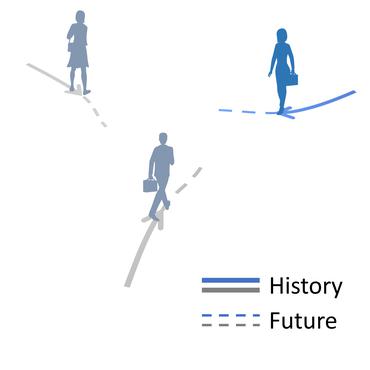Search Results for author: Brian Yang
Found 8 papers, 2 papers with code
Tractable Joint Prediction and Planning over Discrete Behavior Modes for Urban Driving
no code implementations • 12 Mar 2024 • Adam Villaflor, Brian Yang, Huangyuan Su, Katerina Fragkiadaki, John Dolan, Jeff Schneider
Although these models have conventionally been evaluated for open-loop prediction, we show that they can be used to parameterize autoregressive closed-loop models without retraining.
Diffusion-ES: Gradient-free Planning with Diffusion for Autonomous Driving and Zero-Shot Instruction Following
no code implementations • 9 Feb 2024 • Brian Yang, Huangyuan Su, Nikolaos Gkanatsios, Tsung-Wei Ke, Ayush Jain, Jeff Schneider, Katerina Fragkiadaki
Diffusion-ES samples trajectories during evolutionary search from a diffusion model and scores them using a black-box reward function.
Fully Autonomous Real-World Reinforcement Learning with Applications to Mobile Manipulation
no code implementations • 28 Jul 2021 • Charles Sun, Jędrzej Orbik, Coline Devin, Brian Yang, Abhishek Gupta, Glen Berseth, Sergey Levine
Our aim is to devise a robotic reinforcement learning system for learning navigation and manipulation together, in an autonomous way without human intervention, enabling continual learning under realistic assumptions.
DIGIT: A Novel Design for a Low-Cost Compact High-Resolution Tactile Sensor with Application to In-Hand Manipulation
1 code implementation • 29 May 2020 • Mike Lambeta, Po-Wei Chou, Stephen Tian, Brian Yang, Benjamin Maloon, Victoria Rose Most, Dave Stroud, Raymond Santos, Ahmad Byagowi, Gregg Kammerer, Dinesh Jayaraman, Roberto Calandra
Despite decades of research, general purpose in-hand manipulation remains one of the unsolved challenges of robotics.
Morphology-Agnostic Visual Robotic Control
no code implementations • 31 Dec 2019 • Brian Yang, Dinesh Jayaraman, Glen Berseth, Alexei Efros, Sergey Levine
Existing approaches for visuomotor robotic control typically require characterizing the robot in advance by calibrating the camera or performing system identification.
REPLAB: A Reproducible Low-Cost Arm Benchmark Platform for Robotic Learning
no code implementations • 17 May 2019 • Brian Yang, Jesse Zhang, Vitchyr Pong, Sergey Levine, Dinesh Jayaraman
We envision REPLAB as a framework for reproducible research across manipulation tasks, and as a step in this direction, we define a template for a grasping benchmark consisting of a task definition, evaluation protocol, performance measures, and a dataset of 92k grasp attempts.
Data-efficient Learning of Morphology and Controller for a Microrobot
1 code implementation • 3 May 2019 • Thomas Liao, Grant Wang, Brian Yang, Rene Lee, Kristofer Pister, Sergey Levine, Roberto Calandra
Robot design is often a slow and difficult process requiring the iterative construction and testing of prototypes, with the goal of sequentially optimizing the design.
Learning Flexible and Reusable Locomotion Primitives for a Microrobot
no code implementations • 1 Mar 2018 • Brian Yang, Grant Wang, Roberto Calandra, Daniel Contreras, Sergey Levine, Kristofer Pister
This approach formalizes locomotion as a contextual policy search task to collect data, and subsequently uses that data to learn multi-objective locomotion primitives that can be used for planning.





